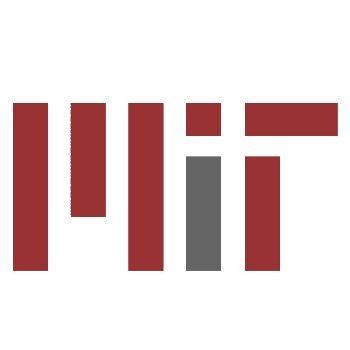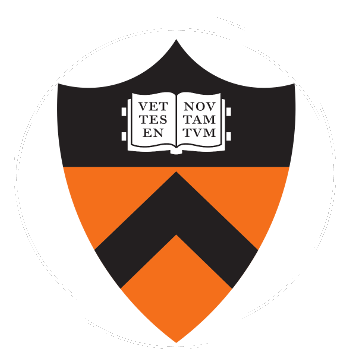Hello! My name is Daniel (Dan) and I am currently a Lecturer in Operations Research and Financial Engineering at Princeton University.
You can also find me on Google Scholar, LinkedIn, and GitHub.
My research interests include:
-
- Network science and social opinion dynamics
- Algorithmic fairness
- Dynamical systems and control
- Systemic risk and financial networks
- Computational social science
See here for a reasonably up-to-date copy of my CV.
In my free time, I enjoy music, ceramics, board games, cooking and reading.
Research
I have been fortunate to work on a wide variety of projects.
In the past, I participated in the Fragile Families Challenge with Prof. Sandy Pentland's Human Dynamics group at the MIT Media Lab, and developed my undergraduate thesis at the Newman Biomechanics Lab with Prof. Neville Hogan.
A branch of my work studies networks and their applications. In particular, I am interested in modeling and addressing sources of fragility in socioeconomic networks.
In social networks, our views are shaped by others - but not everyone. The connections we make create a complex structure which governs the spread of opinions. However, the rise of social media has been accompanied by increases in sociopolitical polarization. My research seeks to understand how small changes to the network's structure can drive a population closer to consensus.
Financial networks are believed to exacerbate crises -- facilitating the propagation of local distress to a global scale. Any individual bank might make optimal investment decisions for their own purposes, but may contribute to systemic fragility and inefficiency. My research in this area develops new models of financial networks -- based on portfolio optimization -- that highlight the difference between individual and collective optima.
A second and more recent area of work understands tradeoffs in algorithmic fairness seen through distinct ethical theories. In doing so, it becomes possible for the preferences of model builders -- or even users -- over different measures of the 'good' to inform their ideal design choice.
Other branches of my work study optimal design of robust global supply chains, and real-time measurement of business dynamics with data from Google Places -- both motivated by challenges seen during the COVID pandemic.
I also have the privilege and pleasure of advising undergraduate senior theses; here are a couple recent examples.
-
Modeling Intergenerational Economic Mobility Dynamics Via Calibrating Markov Models
Aneesh Tekulapally, BSE 2024
-
Capitol Gains: Investigating Insider Trading in the United States House of Representatives Using Time Series Analysis
Burke Pagano, BSE 2024
-
Trading Options with Uncertainty Risk around Earnings Announcements
Eric Ahn, BSE 2024
-
How to Win Nodes and Influence Networks: A Multidimensional Approach to Opinion Dynamics and Influence Games
Raafa Elsheikh, BSE 2025
-
Bayesian Adaptive Clinical Trials: A Soft Actor-Critic Approach
Matthew Willer, BSE 2025
Education
-

B.S. in Mechanical Engineering, 2018
Minors in Economics and Statistics.
-

Ph.D. in ORFE, 2023
Advised by Miklós Rácz and Ronnie Sircar.
Selected Publications
-
Collective Good and Optimization in Socioeconomic Systems
PhD Thesis supervised by Miklós Rácz and Ronnie Sircar.
Essays on tensions between what different decision-makers may deem 'optimal' and competing notions of societal good.(PDF)
-
From Utilitarian to Rawlsian Designs for Algorithmic Fairness
Tradeoffs between two different (and often conflicting) ethical frameworks when building predictive models. (PDF)
-
Formation of Optimal Interbank Lending Networks under Liquidity Shocks
with R. Sircar
Understanding how portfolio optimization yields systemic inefficiencies. (PDF)
-
Towards Consensus: Reducing Polarization by Rewiring Social Networks
with M. Racz
Quantifying the sensitivity of polarization to social network structures. (PDF)
-
Timely Business Dynamics using Google Places
with T. Duprey, A. Kotlicki, P. Shnattinger
Unique advantages of our methodology. (Forthcoming)
Working paper version available (PDF)
-
Business Closures and (Re)Openings in Real-Time Using Google Places: Proof of Concept
with T. Duprey, A. Kotlicki, P. Shnattinger, S. Baharian, and T. R. Hurd.
A novel methodology for timely estimation of business dynamics. (PDF)
-
From “Just in Time” to “Just in Case”: Simple Models of Global Supply Chains and Aggregate Shocks
with B. Jiang and R. Rigobon.
Understanding the vulnerabilities of optimized supply chains. (PDF)
-
Measuring the Predictability of Life Outcomes with a Scientific Mass Collaboration
with M. Salganik et al.
Participated in a large-scale challenge to predict sociological outcomes out-of-sample. (PDF)
-
Winning Models for GPA, Grit, and Layoff in the Fragile Families Challenge
with E. Jahani, Y. Suhara, A. Pentland and A. Almaatouq et al.
Predicting children's later-in-life outcomes with a set of diverse statistical learning techniques. (PDF)
-
Models of Entrainment of Human Walking
Undergraduate Thesis with N. Hogan and J.Lee.
Modeling the emergence of the rhythmic patterns in gait. (PDF)
-
Entrainment of Ankle-Actuated Walking Model to Periodic Perturbations via Leading Leg Angle Control
with J. Ochoa and N. Hogan.
Designing a simple energy-based controller to replicate experimental findings. (PDF)
